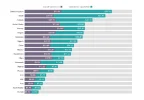IMF: Saudi running on empty in five years
Saudi Arabia could burn through its financial assets within five years, as the country grapples with slumping oil prices.
The Middle East’s biggest economy is expected to run budget deficits of 21.6 percent in 2015 and 19.4 percent in 2016, according the IMF’s latest regional outlook.
That means Riyadh needs to find money to meet its spending plans. Just like its oil exporting neighbours, it plans to make substantial cuts to its budgets.
"For the region’s oil exporters, the fall in prices has led to large export revenue losses, amounting to a staggering $360bn this year alone," Masood Ahmed, the IMF’s Middle East director, told reporters in Dubai.
There has been a trickle of evidence over the last few months that not all is well inside the kingdom.
The Saudi Arabian Monetary Agency has withdrawn $70bn in funds managed by overseas financial institutions. Its foreign reserves have fallen by almost $73bn, since oil prices slumped, leaving it with $654.5bn.
© Hassan Ammar /AFP/Getty Images A view of Riyadh, the capital of Saudi Arabia, at dusk.
But with a debt-to-GDP ratio of two percent, there is plenty of room for the country to borrow money to fund its growth.
The International Monetary Fund’s regional report also found that:
- Syria’s economy has contracted as much as 60 percent since the start of the conflict.
- Yemen’s economy has slumped nearly 30 percent.
- Economic growth for the Middle East, North Africa, Afghanistan and Pakistan could rise to 3.9 percent in 2016 from 2.5 percent this year.
- Oil prices are expected to average $52 a barrel in 2015 and could rise to $63 a barrel next year.
- With oil prices languishing around $50 a barrel, oil exporters need to diversify their economies to absorb millions of job seekers. "Achieving fiscal sustainability over the medium term will be especially challenging given the need to create jobs for the more than 10 million people anticipated to be looking for work by 2020 in the region’s oil-exporting countries," Ahmed said.
- http://www.msn.com/en-us/money/mark...y-in-five-years/ar-BBmk3ZE?ocid=ansmsnmoney11





